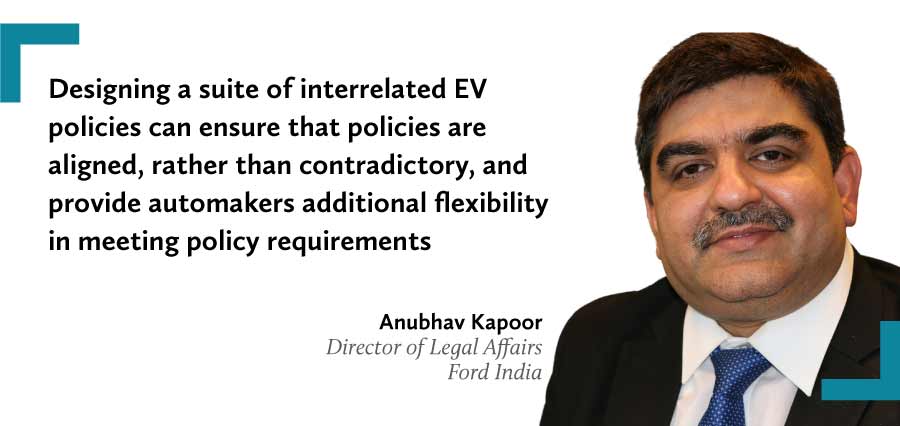There are obvious advantages to the adoption of electric vehicles, but a closer look reveals some key challenges holding the country back from making the switch. Chandu Gopal reports
India has set an ambitious target of completely replacing fossil fuel vehicles with electric vehicles (EVs) by 2030. Currently, there are about 1.33 million electric vehicles, with more than half of them e-rickshaws. In the 2019 financial year, only 0.8% of total vehicle registrations were electric.
In 2019, the government approved Phase II of the FAME India Scheme, (Faster Adoption and Manufacture of Hybrid and Electric Vehicles), an incentive programme for the promotion of electric and hybrid vehicles in the country. The goal of the second phase aimed to generate demand for electric vehicles, specifically 7,000 buses, 500,000 three-wheelers, 55,000 passenger cars (including hybrids) and 1 million two-wheel electric vehicles over a three-year period ending 2022.
CURRENT TRACK
India launched the e-AMRIT portal at the UN Climate Change Conference, or COP26 Summit, in November 2021, as a one-stop shop for all information on EVs in the country, such as charging locations, financing options, investment opportunities, government policies and subsidies. According to data on the site, only New Delhi and Assam and Tripura states have more than 1,000 EVs for every 100,000 non-electric ones. There were more than five EV charging outlets for every 100 petrol pumps only in New Delhi, Goa and Chandigarh.
Delhi Transport Minister Kailash Gahlot on 22 August announced a target of having one charging point within a radius of three kilometres without specifying a deadline. However, the state minister was confident that New Delhi will be able to achieve the target of 25% EVs of total vehicle registrations by 2024.
Meanwhile, the total number of electric vehicles on Indian roads is likely to touch 50 million by 2030, presenting an enormous opportunity for players in the charging ecosystem, according to a report by consultancy firm KPMG.
While favourable government policy is a catalyst, changing consumer preferences can truly tip the scale, says Anubhav Kapoor, the director of legal affairs at Ford India in Pune. He says the trend is evident in the increasing number of people opting for electric vehicles, despite them being costlier.

With petrol prices way past the INR100 (USD1.25) per litre mark all over India, a daily commute to work and back home of around 40km will cost INR15,000-18,000 per month – that is, 15-30% of the average office worker’s salary.
An electric car doing the same distance will cost INR3,000 a month to run, Kapoor points out. However, these opportunities present associated challenges, too.
You must be a
subscribersubscribersubscribersubscriber
to read this content, please
subscribesubscribesubscribesubscribe
today.
For group subscribers, please click here to access.
Interested in group subscription? Please contact us.



























